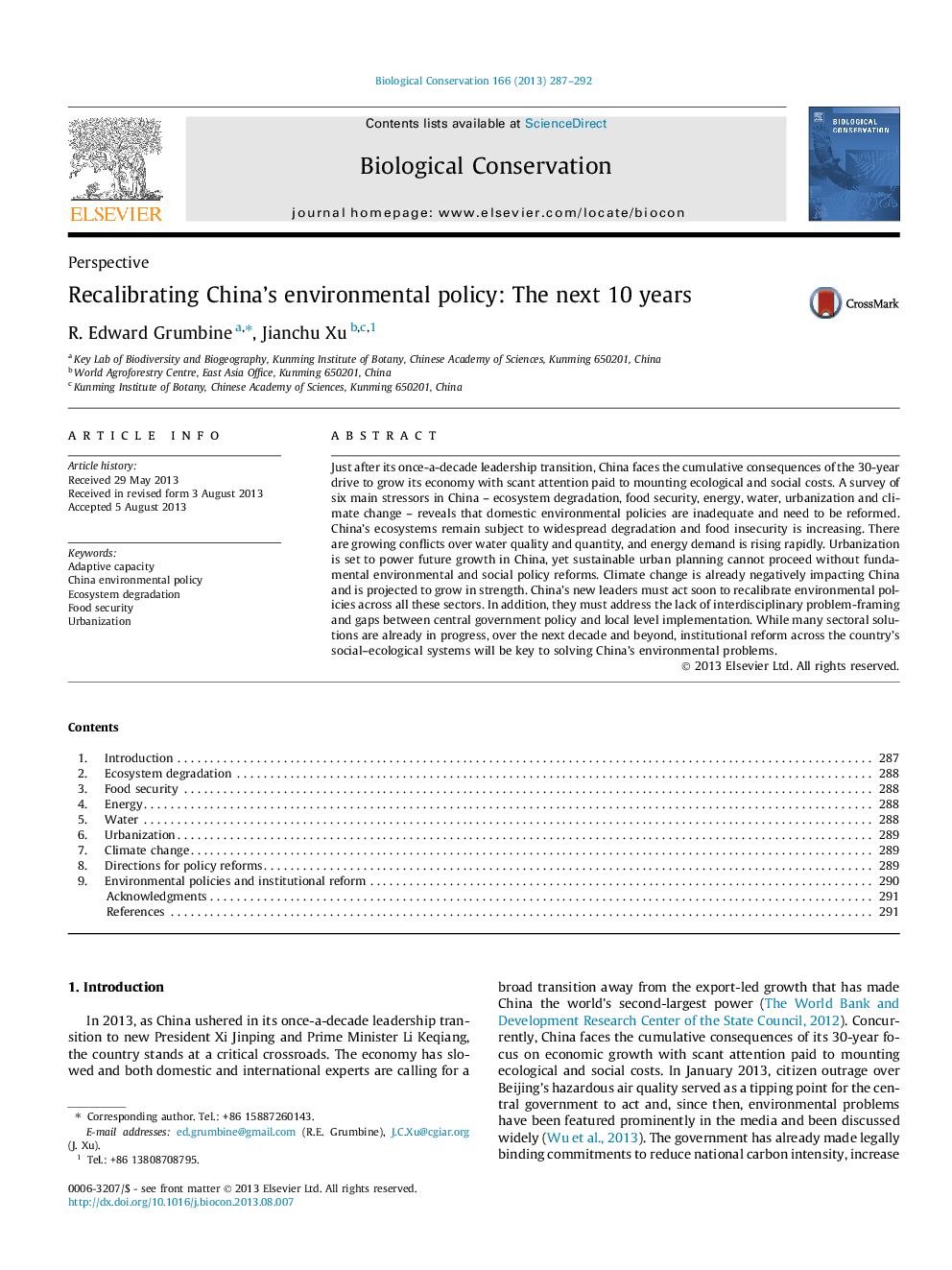| Article ID | Journal | Published Year | Pages | File Type |
|---|---|---|---|---|
| 6300757 | Biological Conservation | 2013 | 6 Pages |
Abstract
Just after its once-a-decade leadership transition, China faces the cumulative consequences of the 30-year drive to grow its economy with scant attention paid to mounting ecological and social costs. A survey of six main stressors in China - ecosystem degradation, food security, energy, water, urbanization and climate change - reveals that domestic environmental policies are inadequate and need to be reformed. China's ecosystems remain subject to widespread degradation and food insecurity is increasing. There are growing conflicts over water quality and quantity, and energy demand is rising rapidly. Urbanization is set to power future growth in China, yet sustainable urban planning cannot proceed without fundamental environmental and social policy reforms. Climate change is already negatively impacting China and is projected to grow in strength. China's new leaders must act soon to recalibrate environmental policies across all these sectors. In addition, they must address the lack of interdisciplinary problem-framing and gaps between central government policy and local level implementation. While many sectoral solutions are already in progress, over the next decade and beyond, institutional reform across the country's social-ecological systems will be key to solving China's environmental problems.
Related Topics
Life Sciences
Agricultural and Biological Sciences
Ecology, Evolution, Behavior and Systematics
Authors
R. Edward Grumbine, Jianchu Xu,
